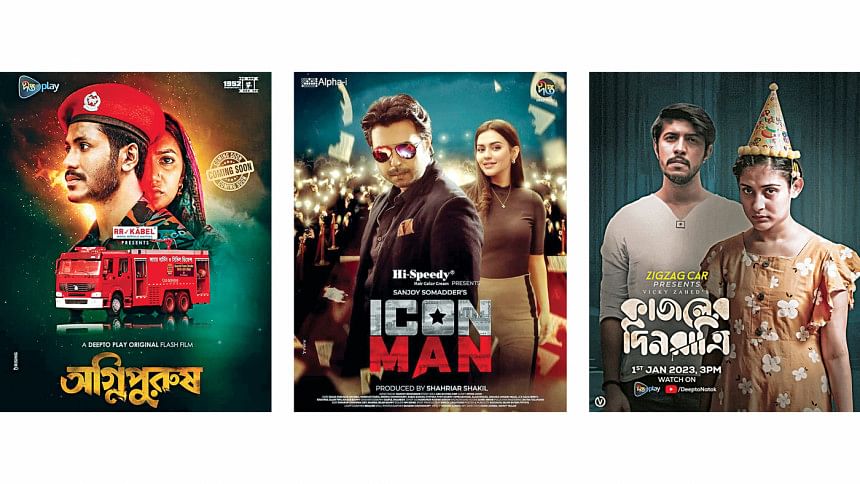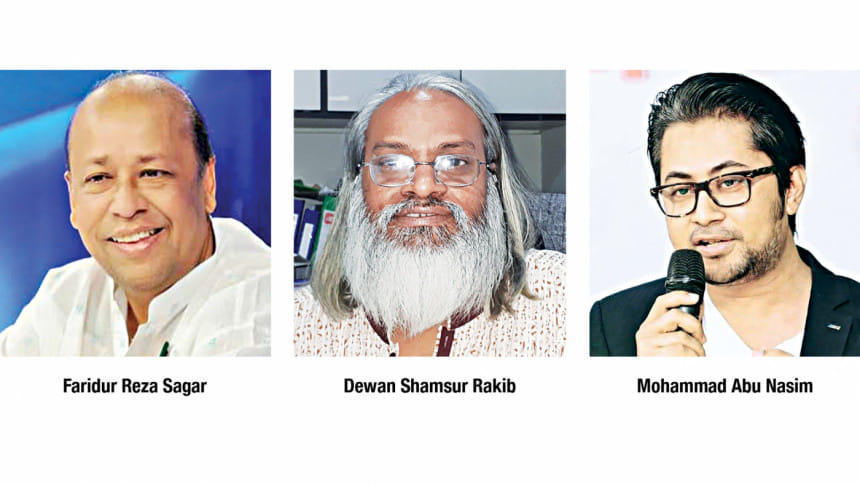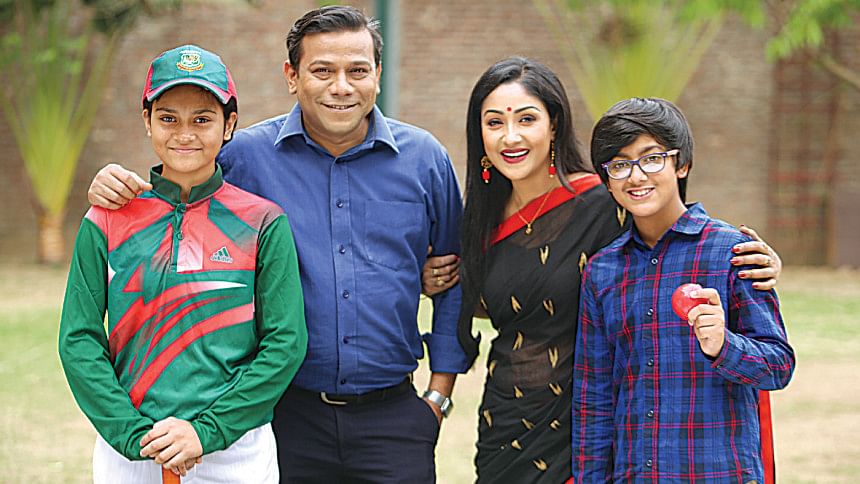Television’s transformation for survival

Burdened with competition from digital platforms, the television industry is dipping its toes into digitalisation as well, with many networks planning to launch their own streaming platforms and news sites.
Spending one's weekend while scrolling down the watchlist on a streaming app can surely not be compared to an evening in the 90s. Back in those days, the entire family would gather in the living room to watch their favourite weekly shows together.
Such was the impact of the television industry in Bangladesh, which has served as the go-to medium of entertainment for decades. For a long while, it was only Bangladesh Television (BTV) entertaining the audience. Currently, there are more than 34 broadcasting satellite channels, most of which air news, entertainment, education, reality shows, sports, and religious programmes.
With the advent of new and digital media, the trend shifted towards international TV channels launching their own over-the-top (OTT) platforms, with the likes of Disney, HBO, ZEE and Sony Liv entering the scene. These platforms have been investing to produce original contents for the consumers to avail upon subscriptions. The wind of change has touched the local entertainment industry as well.

Local channels are also on the run to open new avenues for their audience. As of the time of preparing this piece, three dominating television channels – RTV, Deepto TV and Channel i – have announced and launched their own OTT platforms.
Rtv Plus can be termed as a pioneer in this regard. Launched on May 24, 2020, the platform offers exclusive web content and television projects currently in its archive. Dewan Shamsur Rakib, RTV's head of programmes, shared his plans and experiences regarding the platform with The Daily Star.
"The initial transition was not very difficult for us as one might assume since we already had a mass audience for our channel," shared Rakib.
Deepto TV has a reputation for producing original mega soaps. They have also gained popularity for airing some Turkish TV shows dubbed in Bangla. They launched their own OTT platform Deepto Play in November last year.
"The audience's choices and behaviour vary depending on the platform," said Mohammad Abu Nasim, head of digital media, Deepto Play.
"There is a huge difference in the tastes between television audience and Facebook audience. Even YouTube has a separate audience base. For instance, our show 'Mashrafe Junior' has more viewers on YouTube than on TV, while the daily soap 'Maan Obhimaan' ranks higher in terms of television rating points (TRP)."
"An OTT platform of our own gives us the freedom to select content and control its quality, provided that we make our guidelines based on local broadcasting rules and regulations."

In recent years, local Bangla web content has not only been received well in the country, but also in the global arena. According to Nasim, television channels introducing OTT platforms can be considered a blessing as they already have a group of fixed audiences, and it enables them to attract global audiences as well.
The growing audience base will surely result in the rise of greater competition.
However, the majority of Bangladeshi audiences are still not used to the paid subscription method. They still find it convenient to watch pirated content. Even amid this continued trend, a section of audiences has started purchasing content according to their taste.
Meanwhile, Faridur Reza Sagar, managing director of Impress Telefilm and Channel i, told The Daily Star that launching an OTT platform is something they have always wanted.
"Channel i has always been known for being ahead of its time. We have televised our channel in Canada, long before any other channels did," he said.
According to Sagar, the internet has made everything accessible to its consumers and introducing an OTT platform has helped them cater to a broader global audience.
"Televisions had their limitations as the audience had no choice agency of watching shows at their convenient times. In this regard, an OTT platform introduces an archiving system, making entertainment easily accessible to everyone," said Riaz. The renowned actor is now also a representative of i Screen, Channel i's OTT venture.
"For the longevity of channels' contents, they need an OTT platform as it offers unlimited browsing and time flexibility," he said.
When asked if these platforms will only serve as a digital extension with advanced features for the TV channels, Riaz said, "The answer is yes and no. Our existing audience base is of course a priority. However, the goal is to connect to a broader and global audience base as well."

 For all latest news, follow The Daily Star's Google News channel.
For all latest news, follow The Daily Star's Google News channel. 



Comments